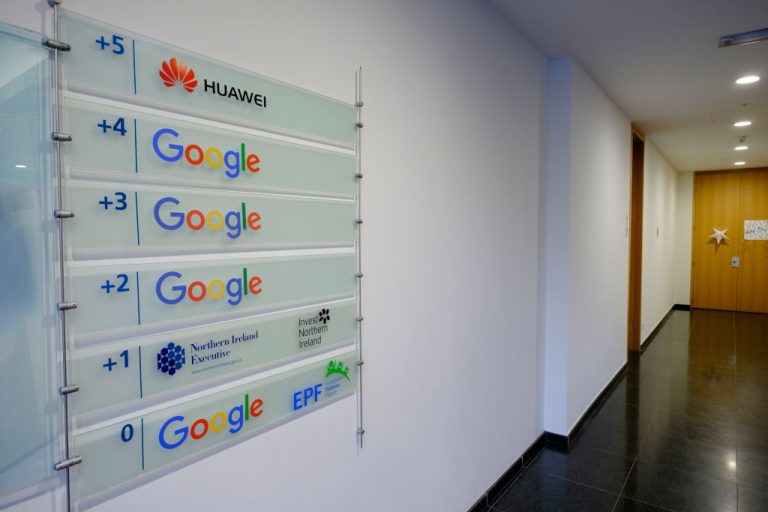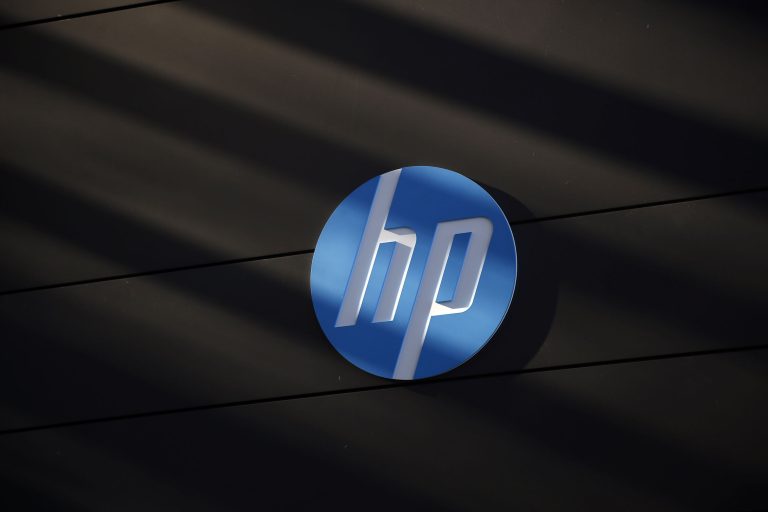An antitrust lawsuit filed by the U.S. Department of Justice and the attorneys-general of eight states against Big Tech kingpin Google has locked the company’s outright stranglehold on the web advertising industry between the government’s crosshairs.
The development is close to three and a half years in the making. The Trump administration’s Justice Department announced a probe of multiple tech giants in July 2019 targeting “widespread concerns that consumers, businesses, and entrepreneurs have expressed about search, social media, and some retail services online,” as reported by The Washington Post.
MORE ON BIG TECH
- In Silencing Conservative Voices, Big Tech Takes the Chinese Communist Path
- Biden Admin ‘Very Angry’ Twitter Wasn’t Doing Enough to Push COVID Narratives
- ‘We Will Have Control’ Over Elon Musk’s Twitter Algorithms, EU Privacy Commissioner Claims
At the root of the DOJ’s Jan. 24 filings against Google in the District Court for Virginia is the enormous breadth of the web advertising industry itself: “Website publishers in the United States sell more than 5 trillion digital display advertisements on the open web each year—or more than 13 billion advertisements every day [emphasis inherent],” the DOJ stated.
The Department added, “To put these numbers in perspective, the daily volume of digital display advertisements grossly outnumbers (by several multiples) the average number of stocks traded each day on the New York Stock Exchange.”
The online advertising industry is facilitated by a complex network of cutting edge technologies, which the DOJ defines as the “Ad Tech Stack,” which a 2019 analysis piece by J.P. Burleigh for the University of Cincinnati’s Law Review titled Is Google’s Ad Policy Anti-Competitive? succinctly summarized.
Success
You are now signed up for our newsletter
Success
Check your email to complete sign up
“Google is like an agent of online real estate for ads. First Google obtains the space for online ads. Some of those spaces are on Google’s own web pages—Google search results, YouTube, Gmail, Google Maps, and more. But many of those spaces are also on third party websites,” the article states.
Burleigh continues, “A third party can sell space on its website to Google through AdSense. Google then sells these spaces to advertisers through Google Ads. Advertisers compete against each other in Google-run auctions. The advertiser who offers the most money per click receives the coveted ad spot, until another advertiser outbids.”
The Justice Department, while describing Google as “a single company with pervasive conflicts of interest,” alleges the firm managed to wrangle via a series of corporate acquisitions and tactics to drive out or minimize competition, current control of:
- “The technology used by nearly every major website publisher to offer advertising space for sale”
- “The leading tools used by advertisers to buy that advertising space”
- “The largest ad exchange that matches publishers with advertisers each time that ad space is sold”
Google’s executives were well aware of the conflict the success of their overwhelming positioning had earned them, the DOJ alleged, quoting an unidentified company executive as asking, “[I]s there a deeper issue with us owning the platform, the exchange, and a huge network?”
“The analogy would be if Goldman or Citibank owned the NYSE,” the same executive answered.
Monopolistic behavior
And Google’s stranglehold is leverage the company has fully exploited for its advantage, the DOJ claims. “By deploying opaque rules that benefit itself and harm rivals, Google has wielded its power across the ad tech industry to dictate how digital advertising is sold, and the very terms on which its rivals can compete.”
The pleadings allege that after Google began serving ads on its search engine in 2000, the company sought to expand to the role of a middleman facilitating advertising between websites and advertisers, which ultimately transformed into a desire to control both sides of the market.
Google’s business model failed to gain traction when the firm attempted to roll it out at scale, however, which resulted in the $3-billion 2008 acquisition of DoubleClick, which instantly gave the world’s premier search engine control over 60 percent of the web ads industry.
The DOJ quoted the former CEO of DoubleClick as stating its business model was so effective because they understood that for websites, switching ad providers was so cost prohibitive that it “takes an act of God to do it.”
After the acquisition, Google parlayed this critical point by gaming its own system. In order to cause websites to become dependent on them, Google drove the cost of advertising up for its own clients by manipulating the bidding process, the DOJ alleged.
The Department quoted a Google employee as admitting the firm was effectively sending a “$3bn yearly check [to publishers] by overcharging our advertisers to ensure we’re strong on the pub[lisher] side.”
UC Law Review also noted that in practice, Google’s grasp controls numerous sectors of the business market because “Google will only sell ad space to buyers that follow the Google Ads Policy.”
“Although Google’s main business is digital advertising, Google’s parent entity, Alphabet, owns eight other subsidiaries operating in a range of industries. In at least two situations, Google’s Ad Policy restricts markets in which a branch of the Alphabet family participates,” Burleigh added.
Conflicts of interest
In one such instance, Burleigh chronicled the case of medical product firm Eclipse, who developed the Eclipse PRP system to separate platelets from patient blood, which was banned from advertising because of a specific Google Ads ban on “platelet rich plasma [PRP].”
The ban was in spite of the fact that “the American Academy of Orthopaedic Surgeons says PRP is effective in treating chronic tendon injuries in the elbow,” the Review stated.
The Review alluded that a conflict of interest may have emerged because of the Alphabet-owned subsidiary Verily Life Sciences.
Burleigh documented how the company, which developed a biometrics sensor for babies that affixed to a diaper, was able to proliferate its advertising across search results in spite of scientific consensus that the product was dubious.
“A team of doctors at Children’s Hospital of Philadelphia published a study in the Journal of the American Medical Association warning that baby monitors exempt from FDA regulation were less accurate than similar devices with FDA approval,” the article stated.
A regulatory crackdown on its business model is something Google appeared desperate to avoid.
In July of 2022, The Wall Street Journal reported that Alphabet had “proposed splitting parts of its business that auctions and places ads on websites and apps into a separate company under the Alphabet umbrella” in order to evade an antitrust suit.
The reason is arguably simple. Google inked $209 billion in revenue in 2021 from the web ads portion of its business, a staggering increase over the $149 billion it logged in 2020 and the $134 billion in 2019.
Web advertising composes the vast majority of Google’s overall revenue. According to Q3 2022 Financial Statements, almost $165.5 billion of the company’s $206.8 billion in revenue for the 9-month period ending Sept. 30, 2022 was generated from “Google advertising.”
Google’s Q4 and Fiscal Year 2022 results are set to be released on Feb. 2.
The motive for the DOJ’s decision to go forward with an antitrust suit despite Google’s proposition to voluntarily break itself up can only be speculated on.
However, an article by the Wall Street Journal published last February reported that the Justice Department had contacted “more than a dozen companies in its antitrust probe of Google, including publishers, advertising technology firms and advertising agencies.” The DOJ’s outreach revealed that rival industries and publishers certainly have an interest in the opportunity.
The Journal explained that its parent company, News Corp, was contacted, along with some of the other largest names in U.S. news, such as The New York Times, Nexstar, Gannett, and Conde Nast.
The suit seeks to force Google to pay damages of an undisclosed sum and to divest its Ad Manager suite.







